Pancreatic cancer: Better services needed after audit reveals case rise
- Published
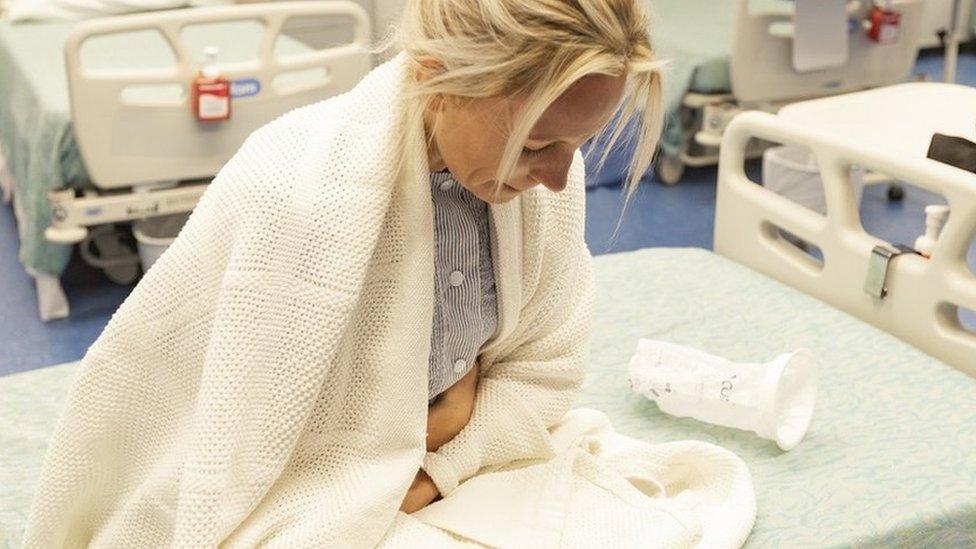
Most patients presented with the top five symptoms - abdominal pain, weight loss, jaundice, nausea/vomiting and decreased appetite
A woman whose husband died from pancreatic cancer said a delay in his diagnosis meant he was unable to receive treatment.
It comes as an audit revealed there had been an 86% increase in cases of pancreatic cancer over two decades.
There were 283 confirmed cases in 2020, up from from 152 in 2001, when the last audit was carried out.
Susan Cooke lost her then-husband Colin just over 10 years ago and said the audit was "important".
It revealed patients were most commonly diagnosed with pancreatic cancer through hospital emergency departments.
Despite visiting his GP and an A&E department, it wasn't until a follow up visit two weeks later that Colin was eventually diagnosed.
"That delayed diagnosis meant that it was too late for any treatment," said Ms Cooke.
The 45-year-old died 11 weeks after his diagnosis.
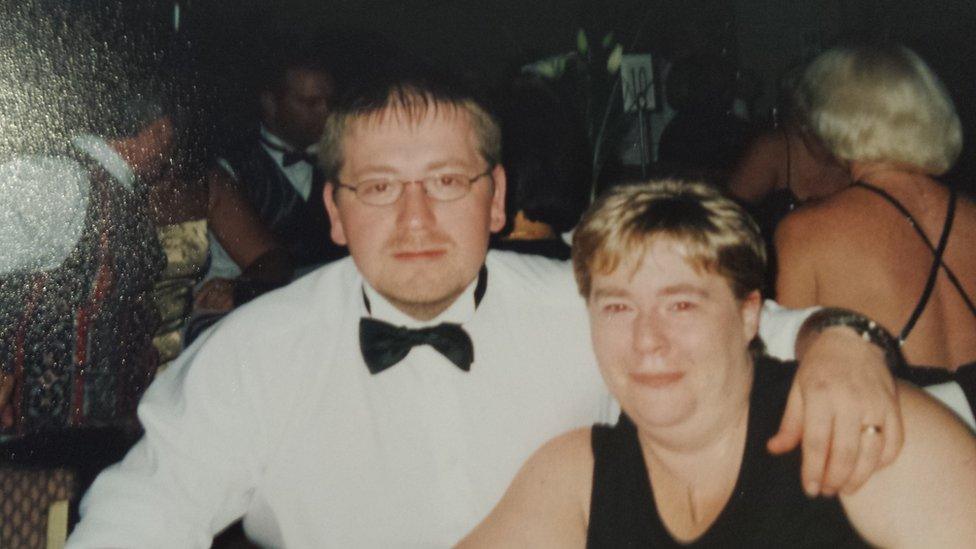
Susan Cooke lost her husband Colin to pancreatic cancer just over 10 years ago
The audit findings have led the NI director of the Royal College of Surgeons to call for "enhanced" services.
Mark Taylor, who is a pancreatic cancer surgeon, said cases were likely to rise because of "increasing age, obesity and diabetes".
"We can see on the ground how pancreatic cancer referrals are increasing and we must strengthen services in our response," Prof Taylor said.
"It is concerning that the most common route to diagnosis was via emergency admissions and the majority of patients presented with advanced (stage four) cancer where the cancer has spread to a distant site."
The audit is the first look at pancreatic cancer services in the UK since the pandemic.
It was funded by the local pancreatic cancer charity NIPANC and supported by the NI Cancer Registry and Queen's University Belfast in partnership with clinical staff in the Belfast Health and Social Care Trust.
Key findings include:
Most patients - 94% - show symptoms at the diagnosis stage
The most common route to diagnosis is through emergency admission - where most cases 53% are diagnosed at an advanced stage
It highlights the need for increased awareness of symptoms among the public and GPs to support early diagnosis
The majority of patients presented with the top five symptoms of abdominal pain, weight loss, jaundice, nausea/vomiting and decreased appetite
During 2019-2020 access to essential PET-CT was low at 17%, with patients waiting on average 44 days for a scan
Patients who had curative oncology as their first treatment waited a median of 72 days in 2019 and 79 days in 2020
Only 1% of patients were enrolled in clinical trials
'Secondary care wasn't smooth'
Ms Cooke said the audit was important because it showed the number of people being diagnosed within emergency departments.
She said more awareness from Colin and herself, as well as the medical professionals involved in his treatment, would have made a difference to his diagnosis.
"A lot of the symptoms that come along on their own are very minor but when they're all put together they paint a different picture.
"Being diagnosed in the emergency department, our journey through that secondary care was not smooth."
She said she hoped the findings from the audit would inform efforts on awareness campaigns and support for families affected by the disease.
"We're talking about it much more in Northern Ireland... ten years ago, when my husband was diagnosed, I didn't know anybody else," she added.
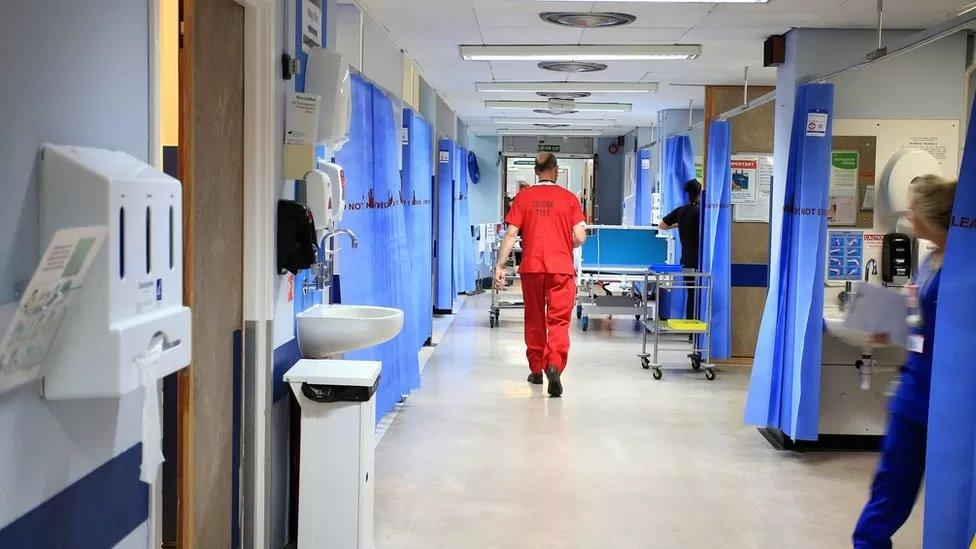
The audit found most patients are diagnosed with pancreatic cancer through emergency hospital admission
On a more positive note, the audit revealed that patients accessed a range of support services including clinical nurse specialists.
And virtually all the patients were discussed by a multi-disciplinary team meeting prior to their first treatment - a key aspect of holistic, patient-centred care.
Dr Damien Bennett, interim director of the NI Cancer Registry, said patients needed better access to clinical trials.
"This audit shows that, unfortunately, most people with pancreatic cancer are still diagnosed with advanced disease, which leads to worse outcomes and poorer survival," Dr Bennett added.
The audit also revealed that 40% of patients did not have a treatment plan to reduce their tumour in 2019, a figure that increased to 46% in just over a year.
If more people can be diagnosed earlier and when they are fitter, they might be able to receive tumour-reducing therapies and survive longer, it found.
Related topics
- Published12 November 2021
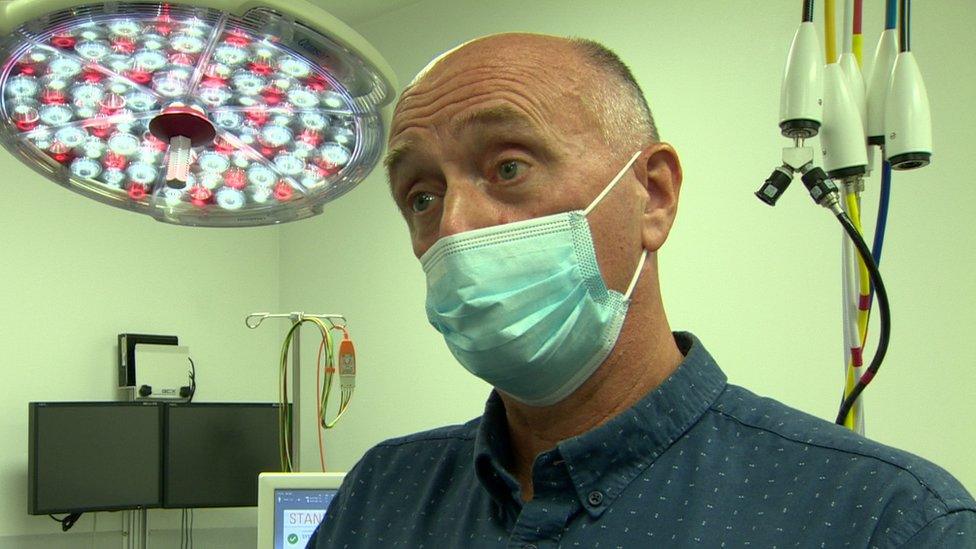
- Published2 August 2021
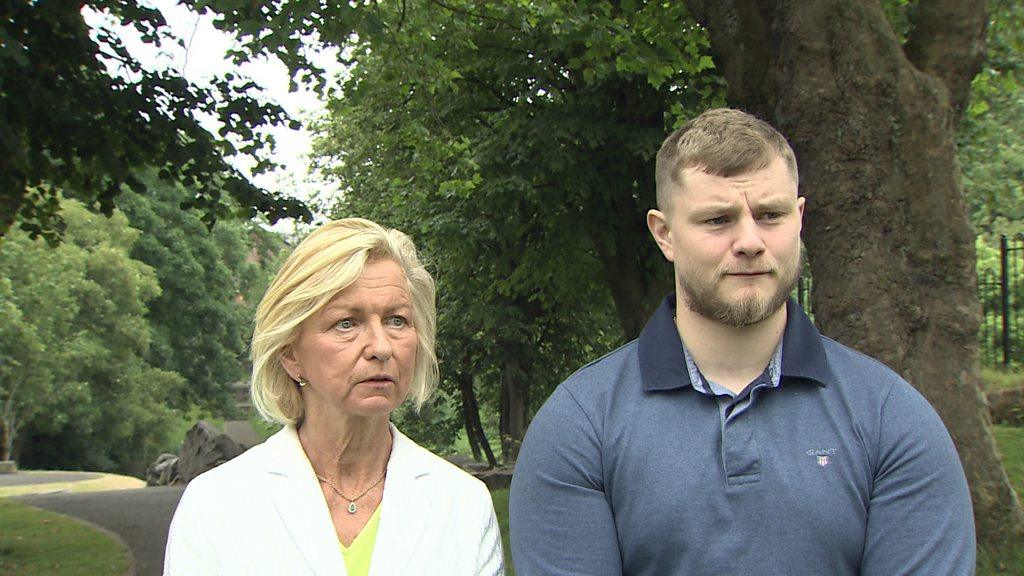
- Published18 July 2019
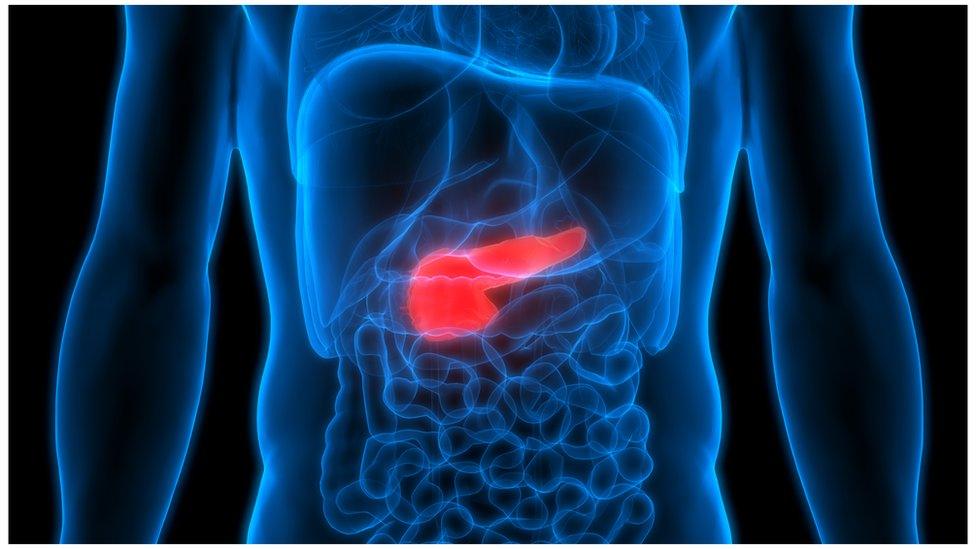
- Published1 August 2018
